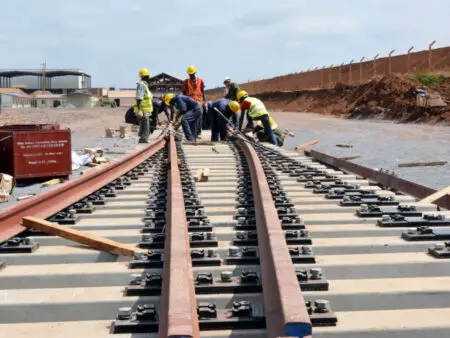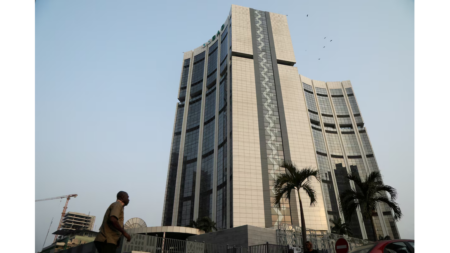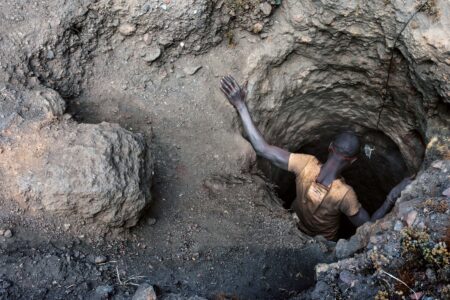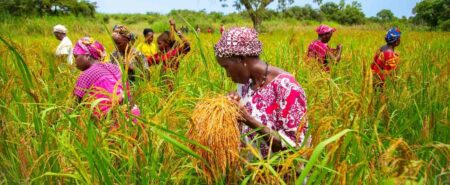India’s total trade with Africa has grown from US$ 6.8 billion in 2003 to US$ 76.9 billion in 2018 making Asia’s second-largest economy Africa’s third-largest trade partner.
With these figures, a close partnership between the African continent and India could improve the welfare of 2.5 billion people in the post-Covid-19 era. The pandemic has provided an impetus for a stronger partnership between India and Africa with potential benefits to both as they sustainably build back even with the crisis.
For Africa and India to reap the benefits of this relationship, they must reinforce collaboration in public health, digital delivery, capacity building and the green economy.
Read: Tanzania and India ties set to deepen
Globally, India is renowned for its many innovations, especially in the medical field. The country has maintained that progress in the world is contingent on the development of the global south and nowhere is this more evident than in Africa.
India’s relationship with Africa goes back to the 1920s during the struggle for independence from colonial rule. With this relationship, India launched the Indian Technical and Economic Cooperation (ITEC) programme in 1964 to provide technical assistance through human resource development to other developing countries. African countries were the greatest beneficiaries of the ITEC and another programme dubbed the Special Commonwealth African Assistance Programme (SCAAP).
On the other hand, India’s economic engagement with Africa only began intensifying in the early 2000s. This has seen Indian investments on the continent grow rapidly in the last decade making India the seventh-largest investor in Africa currently.
To further deepen and improve the trade ties, India launched the India Africa Trade Council (IATC) on January 22, 2021.
The African continent has multilateral business opportunities which are largely untapped. There is also an abundance of natural resources which are similarly largely unexploited by the extractives industry like the large reserves of oil. The continent also has the potential to support a large per cent of the world’s hydroelectric power in addition to human capital.
Additionally, Africa has the potential to sufficiently feed the world since it has millions of untilled acres of farmland. This untapped potential is important for India even as it seeks to forge stronger trade ties with the region.
Africa’s trading blocs, AfCFTA
Africa has been trading in regional blocs consisting of the Common Market for Eastern and Southern Africa (COMESA), Economic Community of West African States (ECOWAS), the Sahel Alliance and the West African Economic and Monetary Union (WAEMU).
With the operationalisation of the African Continental Free Trade Area (AfCFTA), the trade perspectives for Africa on the global scene will tilt.
AfCFTA will diversify exports, accelerate growth and it will competitively integrate into the global economy. This will increase foreign direct investment (FDI), increase employment opportunities and incomes while also broadening economic inclusion.
Projected estimates show that the FTA will increase Africa’s exports by US$560 billion with manufacturing accounting for the lion’s share. While has had limited trade within itself, the agreement will see intra-continental exports increase by 81 per cent and by 19 per cent to non-African countries.
By 2030, the Mo Ibrahim Foundation projects that AfCFTA could generate a combined consumer and business spending of US$6.7 trillion by 2030 if successfully implemented. The AfCFTA will not only facilitate easier trading between countries but it will also reshape markets and economies across the region leading to the expansion of key sectors and the creation of new industries.
Read: India signs eight deals with Rwanda, extends $200M credit line
African countries will become more competitive globally.
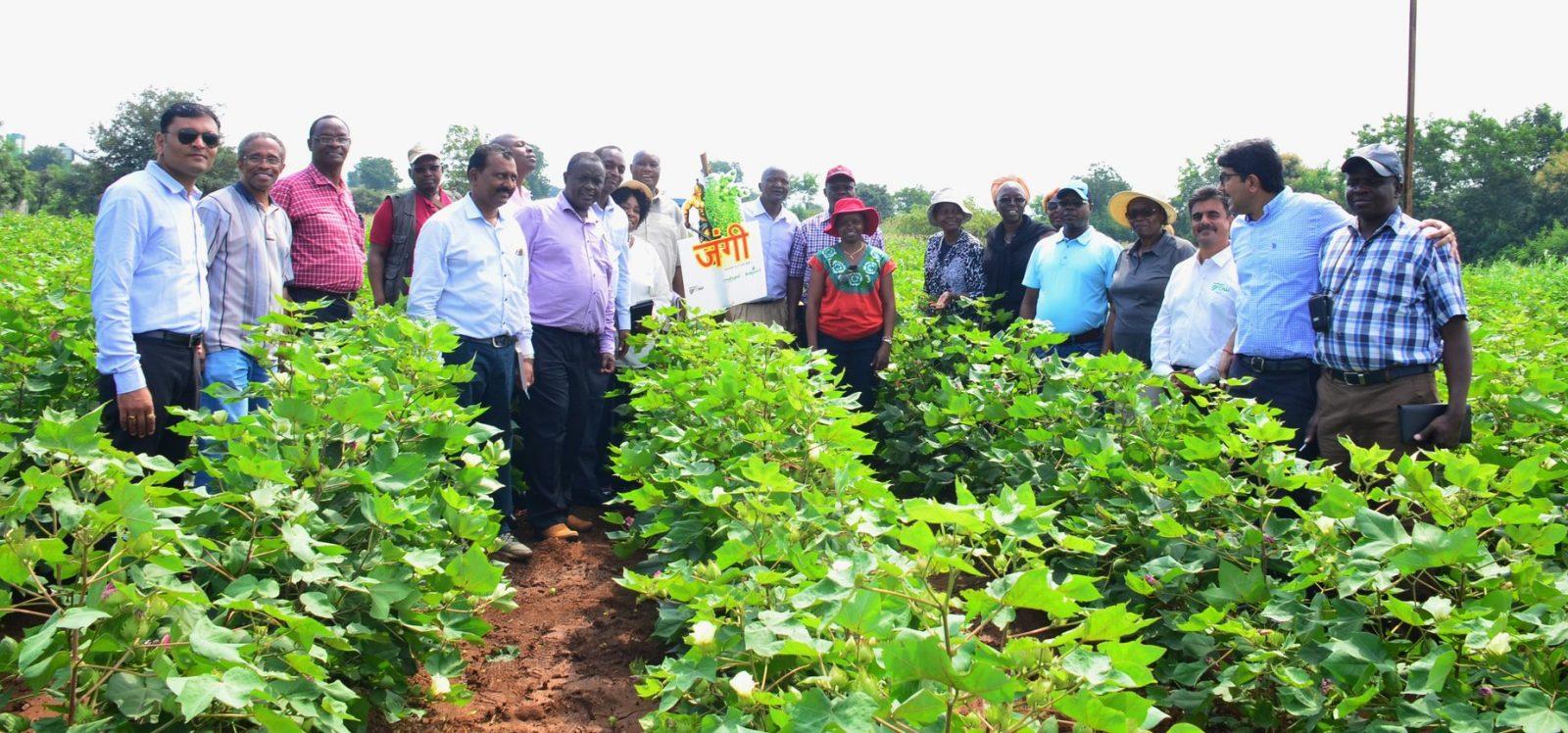
For instance, the African Development Bank (AfDB) is planning on investing up to US$3 billion over the next 30 years for the development of healthcare infrastructure across Africa and to advance the manufacture of pharmaceuticals. With the experiences wrought on by the Covid-19 pandemic, AfDB Group’s Vice President for Private Sector, Infrastructure and Industrialization, Solomon Quaynor, says that the bank is focused on health defence systems which will be developed in dialogue with 81 African and non-African government shareholders, including India.
In addition to pharmaceuticals, Africa’s potential also lies in the textile industry and India has a lot to benefit from in this sector.
For Sub-Saharan Africa alone, the region’s clothing and footwear market is worth US$31 billion and growing. With a budding creative fashion industry in the region, India is in a good place to reap the returns from this multibillion-dollar sector.
Since the pandemic hit, consumer behaviour and products offered have changed with designers becoming agile and ready to pivot into any business model that suits them. In addition, the pandemic has also opened up opportunities for Africa’s fashion businesses to leap forward since the virus gave fashion entrepreneurs time to rethink, re-invent and re-develop the industry.
Even though much of trade in Africa has been with China going by available documentation, India which is Asia’s second-biggest economy has greatly increased its footprint on the continent. The India-Africa trade is flourishing and it has grown at an annual average rate of 17.2 per cent since 2001.
This makes India Africa’s second most important trading partner after China. And, it gets better.
Although China’s trading volume with African countries is still three times higher, India is in a ring with many other suitors interested in doing business on the continent.
The US, Japan, the EU and many others are scrambling for a piece of the pie.
This means that India, despite its age-old relationship with Africa, needs so much more than just good PR. As witnessed with China, Africa will embrace a trade partner who will offer solutions to the challenges the continent’s 1.3 billion people face.
The world has seen the transformation of the continent especially in financial inclusion where banking the unbanked has created solutions that a few decades back were impossible. Again, opening up of the continent’s hinterlands through the creation of transport infrastructure has seen China become a very welcome and suitable partner on the continent.
This is beside the debt-trap narrative. These two are classic examples of how solutions-driven trade partnerships can drive development on the continent while also benefiting the partners’ footprint growth on the continent.
For India, the stark reality is that it will not be a walk in the park but the solutions the country offers to Africa will determine the success of any trading venture on the continent.






